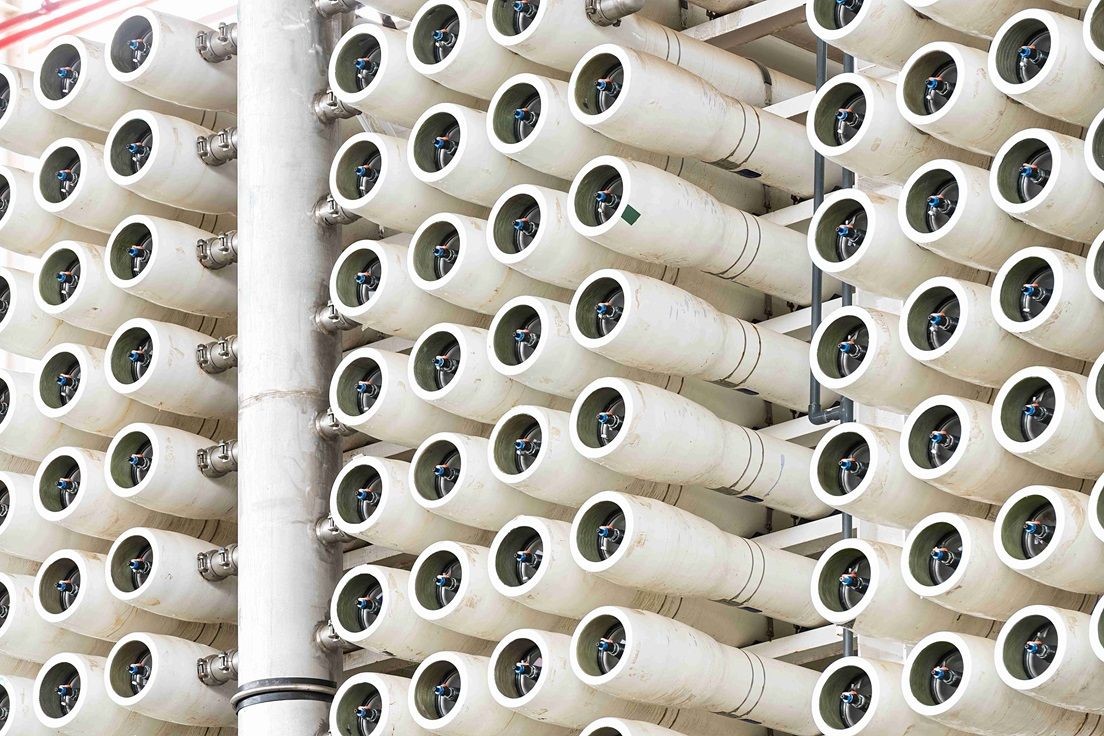
By 2030, the global supply of desalinated water is expected to significantly increase in the GCC (Gulf Cooperation Council) region. ENGIE has been a major player in the Middle East’s desalination sector for over 30 years, with a current capacity of more than 5.8 Mm³/day, and more plants under construction.
ENGIE R&I is supporting ENGIE’s business by assessing, testing and deploying innovative solutions to reach highly efficient and low environmental impact of our large scale desalination plants.
ENGIE R&I is currently deploying a desalination testing platform in one of ENGIE’s Middle East assets. It will consist of multiple semi-industrial pilots designed to deliver quantitative and qualitative data using real seawater from operating assets. Multiple technologies, equipment and products will be tested at different levels of technology readiness. Indeed, ENGIE R&I has a long history of collaboration with universities and OEMs to identify, test and deploy innovative solutions.
The Reverse Osmosis (RO) units will be the first bricks of the desalination testing platform, generating tangible data to support the current and future assets as of 2024. Some of our targets are to test different RO membranes, to optimize the operation of the RO system and to become more energy efficient.
The pre-treatment units main goal will be to find innovative solutions to protect the RO membranes against fouling and to increase the availability of the plant during degraded water quality events (such as algae bloom), anticipating long term climate change impact.
The desalination testing platform is planned to run for several years with first concrete results expected by summer 2024.
Thanks to Daniel Baaklini, Hunain Muhammad Arif, Marie-Laure Thielens, Samuel Saysset (ENGIE R&I) & Latifa Lahsine (ENGIE AMEA) for for writing this article.